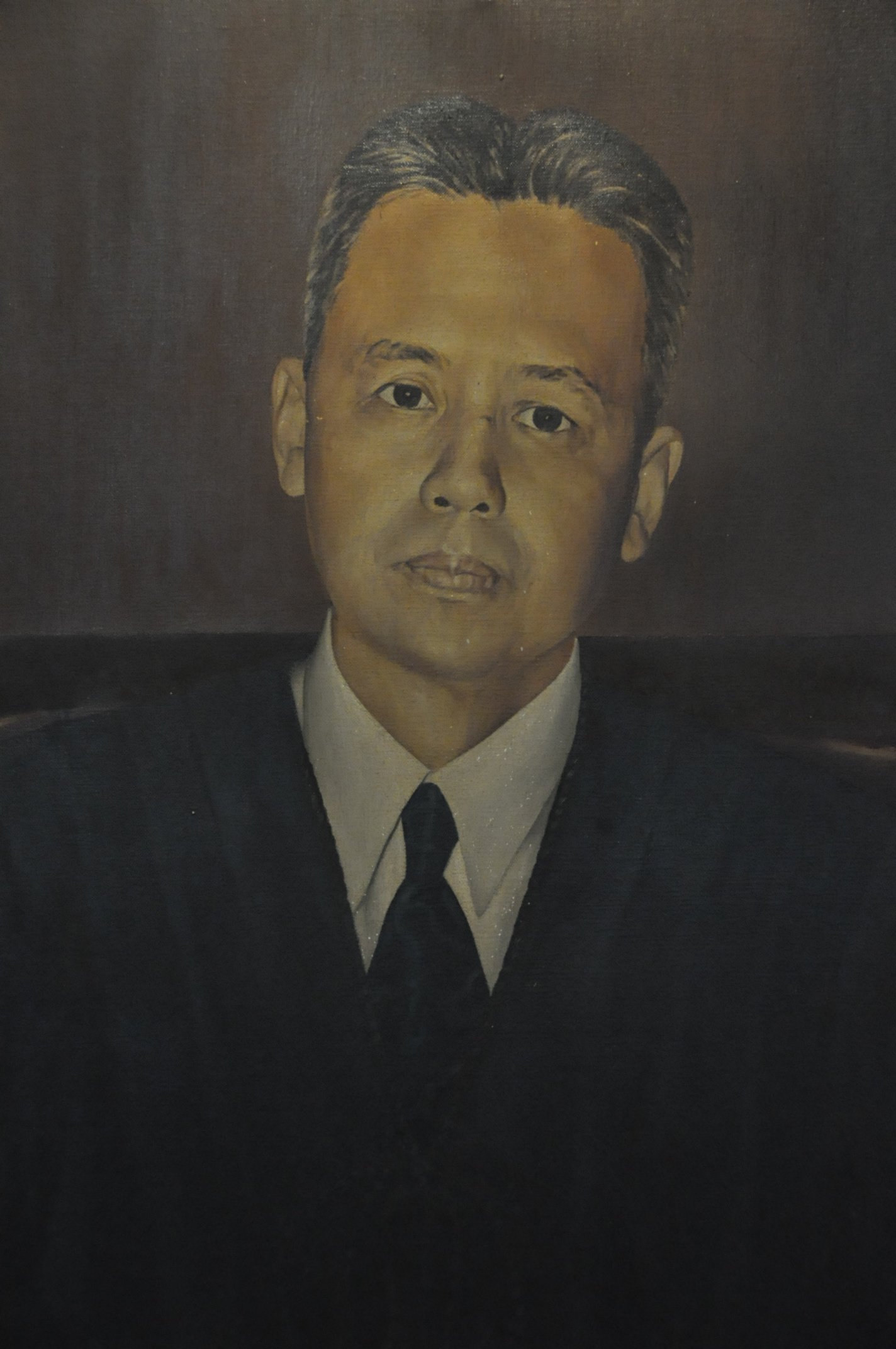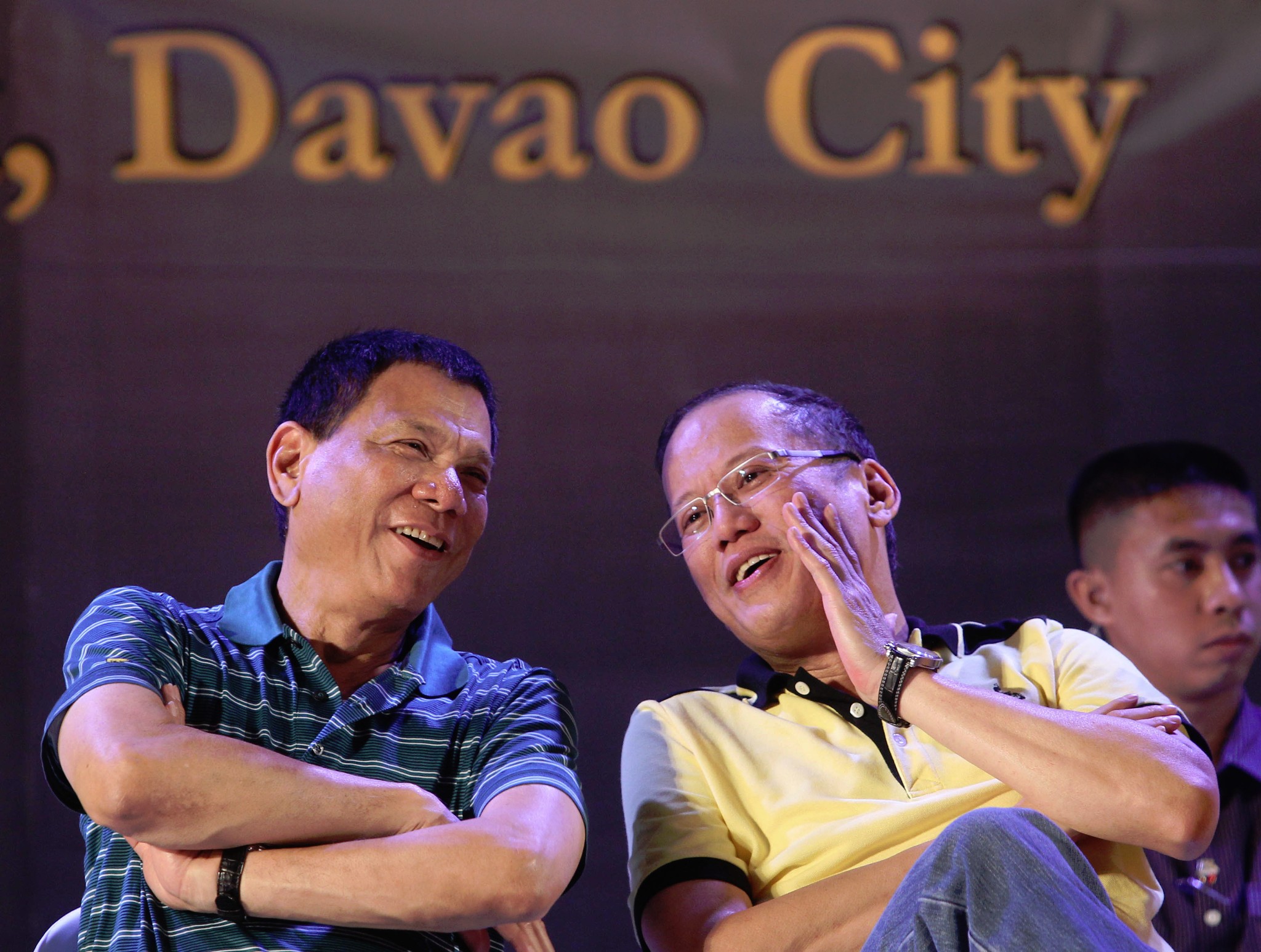|
Coconut Levy
The Coco Levy Fund Scam was a controversy in the 1970s and 1980s in the Philippines involving former President Ferdinand Marcos and his cronies. It was alleged that Marcos, Danding Cojuangco, Juan Ponce Enrile, and others conspired to tax coconut farmers, promising them the development of the coconut industry and a share of the investments, but on the contrary used the collection fund for personal profit, particularly in the purchase of United Coconut Planters Bank (UCPB) and a majority stake in San Miguel Corporation (SMC), to name two. The issue is still ongoing up to this day, with coconut farmers fighting for justice against the forced taxation, and a share of the Coco Levy Fund's investments. The Coco Levy Fund is estimated to have ballooned anywhere in the range of ₱100 billion to 150 billion in assets. In 2012, a Supreme Court decision awarded ₱71 billion in coconut levy funds to coconut farmers. [...More Info...] [...Related Items...] OR: [Wikipedia] [Google] [Baidu] |
Philippines
The Philippines, officially the Republic of the Philippines, is an Archipelagic state, archipelagic country in Southeast Asia. Located in the western Pacific Ocean, it consists of List of islands of the Philippines, 7,641 islands, with a total area of roughly 300,000 square kilometers, which are broadly categorized in Island groups of the Philippines, three main geographical divisions from north to south: Luzon, Visayas, and Mindanao. With a population of over 110 million, it is the world's List of countries and dependencies by population, twelfth-most-populous country. The Philippines is bounded by the South China Sea to the west, the Philippine Sea to the east, and the Celebes Sea to the south. It shares maritime borders with Taiwan to the north, Japan to the northeast, Palau to the east and southeast, Indonesia to the south, Malaysia to the southwest, Vietnam to the west, and China to the northwest. It has Ethnic groups in the Philippines, diverse ethnicities and Culture o ... [...More Info...] [...Related Items...] OR: [Wikipedia] [Google] [Baidu] |
Imelda Marcos
Imelda Romualdez Marcos (; born Imelda Remedios Visitación Trinidad Romuáldez; July 2, 1929) is a Filipino politician who was First Lady of the Philippines from 1965 to 1986, wielding significant political power after her husband Ferdinand Marcos placed the country under Martial law under Ferdinand Marcos, martial law in September 1972. She is the mother of current president Bongbong Marcos. During her husband's 21-year rule, Imelda Marcos ordered the construction of many grandiose architectural projects, using public funds and "in impossibly short order" – a propaganda practice, which eventually came to be known as her "edifice complex". She and her husband Embezzlement, stole billions of Philippine peso, pesos from the Filipino people,Manapat, Ricardo (1991) Some Are Smarter than Others: The History of Marcos' Crony Capitalism. Ateneo de Manila University Press. amassing a personal fortune estimated to have been worth to by the time they were deposed in 1986; by 2018, ... [...More Info...] [...Related Items...] OR: [Wikipedia] [Google] [Baidu] |
1986 In The Philippines
1986 in the Philippines details events of note that happened in the Philippines in the year 1986. Incumbents Fourth Republic ''(1984–86)'' *President: Ferdinand Marcos ( KBL) ''(deposed February 25, 1986)'' *Vice President: Arturo Tolentino ( KBL) * Chief Justice: Ramon Aquino *Philippine Congress: Regular Batasang Pambansa * House Speaker: Nicanor Yñiguez ( KBL) Revolutionary Government ''(March 25 – June 2, 1986)'' and Fifth Republic ''(1986 – present)'' *President: Corazon Aquino (UNIDO) *Vice President: Salvador Laurel (UNIDO) * Chief Justice: Claudio Teehankee ''(1986–88)'' Events February * February 7 – Presidential snap elections are held. Pres. Marcos leads the tally made by the Commission of Elections (Comelec), but his opponent, Corazon Cojuangco–Aquino, leads another tally by the National Movement for Free Elections (Namfrel). * February 9 – Thirty Comelec computer technicians walk out of their tabulation center at the PICC to protest attempt ... [...More Info...] [...Related Items...] OR: [Wikipedia] [Google] [Baidu] |
Political Scandals In The Philippines
Politics () is the set of activities that are associated with making decisions in groups, or other forms of power relations among individuals, such as the distribution of status or resources. The branch of social science that studies politics and government is referred to as political science. Politics may be used positively in the context of a "political solution" which is compromising and non-violent, or descriptively as "the art or science of government", but the word often also carries a negative connotation.. The concept has been defined in various ways, and different approaches have fundamentally differing views on whether it should be used extensively or in a limited way, empirically or normatively, and on whether conflict or co-operation is more essential to it. A variety of methods are deployed in politics, which include promoting one's own political views among people, negotiation with other political subjects, making laws, and exercising internal and external for ... [...More Info...] [...Related Items...] OR: [Wikipedia] [Google] [Baidu] |
List Of Political Scandals In The Philippines ...
The following are a list of political scandals in the Philippines. 1940s 1950s 1960s 1970s 1980s 1990s 2000s 2010s 2020s See also * Government of the Philippines * Executive departments of the Philippines * Corruption in the Philippines References {{DEFAULTSORT:List Of Philippine Political Scandals Scandals Philippines The Philippines, officially the Republic of the Philippines, is an Archipelagic state, archipelagic country in Southeast Asia. Located in the western Pacific Ocean, it consists of List of islands of the Philippines, 7,641 islands, with a tot ... [...More Info...] [...Related Items...] OR: [Wikipedia] [Google] [Baidu] |
Corruption In The Philippines
Corruption in the Philippines is a widespread problem its citizens endure, which developed during the Spanish colonial period. According to GAN Integrity's ''Philippines Corruption Report'' updated May 2020, the Philippines suffers from many incidents of corruption and crime in many aspects of civic life and in various sectors. Such corruption risks are rampant throughout the state's judicial system, police service, public services, land administration, and natural resources. The 2024 Corruption Perceptions Index scored the Philippines at 33 out of 100 points. When ranked by score, the Philippines ranked 114th among the 180 countries in the 2024 Index, where the country ranked first is perceived to have the most honest public sector. The Philippines's score was significantly worse than the regional average of 44 and the worldwide average score of 43. Examples of corruption in the Philippines include graft, bribery, cronyism, nepotism, impunity, embezzlement, extortion, r ... [...More Info...] [...Related Items...] OR: [Wikipedia] [Google] [Baidu] |
Supreme Court Of The Philippines
The Supreme Court (; colloquially referred to as the ' (also used in formal writing), is the highest court in the Philippines. It was established by the Taft Commission on June 11, 1901, through the enactment of Act No. 136, which abolished the Real Audiencia of Manila, the predecessor of the Supreme Court. The Supreme Court compound is located in what was formerly a part of the University of the Philippines Manila campus. It occupies the corner of Padre Faura Street and Taft Avenue in Ermita, Manila, with the main building sited directly in front of Philippine General Hospital's cancer institute. History Early history Prior to the conquest of Spain, the islands of the Philippines were composed of independent barangay state, barangays, each of which is a community composed of 30 to 100 families. Typically, a barangay is headed by a ''datu'' or a local chief who exercises all functions of government: executive, legislative and judicial; he is also the commander-in-chief in time ... [...More Info...] [...Related Items...] OR: [Wikipedia] [Google] [Baidu] |
State Property
State ownership, also called public ownership or government ownership, is the ownership of an industry, asset, property, or enterprise by the national government of a country or state, or a public body representing a community, as opposed to an individual or private party. Public ownership specifically refers to industries selling goods and services to consumers and differs from public goods and government services financed out of a government's general budget. Public ownership can take place at the national, regional, local, or municipal levels of government; or can refer to non-governmental public ownership vested in autonomous public enterprises. Public ownership is one of the three major forms of property ownership, differentiated from private, collective/cooperative, and common ownership. In market-based economies, state-owned assets are often managed and operated as joint-stock corporations with a government owning all or a controlling stake of the company's share ... [...More Info...] [...Related Items...] OR: [Wikipedia] [Google] [Baidu] |
Coconut Production In The Philippines
Coconut production plays an important role in the national economy of the Philippines. According to figures published in December 2009 by the Food and Agriculture Organization of the United Nations, the Philippines is the List of countries by coconut production, world's second largest producer of coconuts, producing 19,500,000 tonnes in 2009. Production in the Philippines is generally concentrated in medium-sized farms. According to 2019 Philippine Statistics Authority data, coconut farmers earn an average daily wage of PHP338.72. According to farmers group Kilusan Para sa Tunay na Repormang Agraryo at Katarungang Panlipunan, coconut farmers are among the poorest in the agricultural sector. The Philippines is the world's top producer and exporter of virgin coconut oil. History According to the United Nations, coconut production in the Philippines grew at the rate of 5.3 per cent per year from 1911 to 1929, and increased by 3.5 per cent from 1966 to 1970. In 2012, the Philipp ... [...More Info...] [...Related Items...] OR: [Wikipedia] [Google] [Baidu] |
Trust Fund
A trust is a legal relationship in which the owner of property, or any transferable right, gives it to another to manage and use solely for the benefit of a designated person. In the English common law, the party who entrusts the property is known as the "settlor", the party to whom it is entrusted is known as the "trustee", the party for whose benefit the property is entrusted is known as the "beneficiary", and the entrusted property is known as the "corpus" or "trust property". A ''testamentary trust'' is an irrevocable trust established and funded pursuant to the terms of a deceased person's will. An inter vivos trust is a trust created during the settlor's life. The trustee is the legal owner of the assets held in trust on behalf of the trust and its beneficiaries. The beneficiaries are equitable owners of the trust property. Trustees have a fiduciary duty to manage the trust for the benefit of the equitable owners. Trustees must provide regular accountings of trust incom ... [...More Info...] [...Related Items...] OR: [Wikipedia] [Google] [Baidu] |
Rodrigo Duterte
Rodrigo Roa Duterte (, ; born March 28, 1945) is a Filipino lawyer and politician who served as the 16th president of the Philippines from 2016 to 2022. He is the first Philippine president from Mindanao, and is the oldest person to assume office, beginning his term at age 71. Duterte is the chairman of Partido Demokratiko Pilipino, the ruling party during his presidency. Born in Maasin, Leyte (now in Southern Leyte), Duterte moved to Davao as a child where his father, Vicente Duterte, served as provincial governor. He studied political science at the Lyceum of the Philippines University, graduating in 1968, before obtaining a law degree from San Beda College of Law in 1972. He then worked as a lawyer and prosecutor for Davao City, before becoming vice mayor and, subsequently, mayor of the city in the wake of the 1986 People Power Revolution. Duterte won seven terms and served as mayor of Davao for over 22 years, during which the once crime-ridden city became pea ... [...More Info...] [...Related Items...] OR: [Wikipedia] [Google] [Baidu] |







